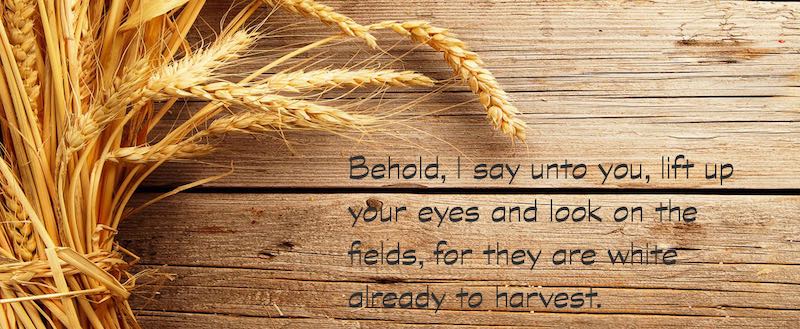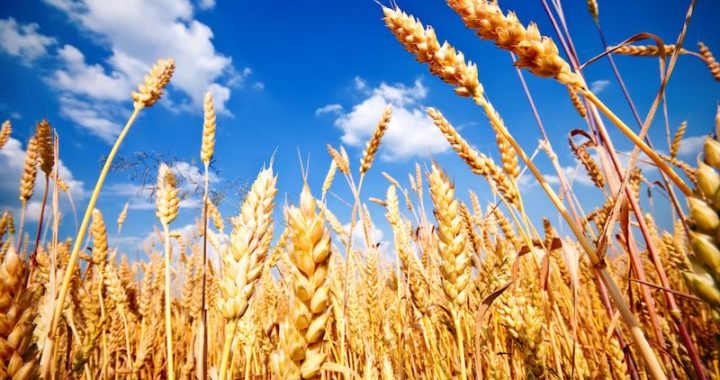For those of you who have been to my home in Jerusalem for a Sabbath Experience, you are more than likely aware of my teaching on the Appointed Times of the LORD, including the Sabbath, as a necessary means to more fully understand the Bible as a whole. The majority of the Bible, especially the New Testament, is dependent on this fundamental understanding of the Appointed Times. The seven Appointed Times, as detailed in Leviticus chapter twenty-three, are as follows:
- The Sabbath
- The Passover/The Feast of Unleavened bread (counted as one feast)
- The Wave Offering of the First Fruits
- The Feast of Weeks – The Full First Fruits (also called Pentecost)
- The Feast of Trumpets – Rosh Hashanah
- The Day of Atonement
- The Feast of Tabernacles
The Sabbath is unique compared to the other six Appointed Times as the Sabbath is observed weekly whereas the others are observed yearly. The Sabbath is also unique in that it was the first historically, becoming the seventh day of the creation week. As the first, the Sabbath is foundational to understanding the other Appointed Times.

The Foundation of the Sabbath
The Appointed Times are all unique but, at the same time, they are also intricately connected to one another with the Sabbath being chief of them all. For example, how can a person celebrate the seven-day festival of Passover, which includes a rest day on the first day and the seventh day, without understanding how a day of rest is to be observed? The weekly observation of the Sabbath provides the foundation of what it means to cease working for twenty-four hours, to rest, and to have a holy assembly to the LORD. The practice of the Sabbath thereby enables a person to observe each of the Appointed Times as God intended them to be observed.
Although I believe we are no longer obligated under the Old Covenant to keep the Appointed Times according to the letter of the Law, I personally observe the Appointed Times week to week and year to year as a way to identify with my people, the Jewish people, and as means to better understand the Bible. As I practice and observe the seven Appointed Times, I see the Bible differently and understand the New Testament in a clearer light. I recommend to other believers in the Messiah, Jew and Gentile alike, to observe and embrace the Appointed Times as a means of better understanding the Scriptures as a whole. To learn more about the Appointed Times and their prophetic significance, I encourage you to read another article I wrote on this subject: The Appointed Times & The Messiah
The Appointed Times & Agriculture
Although the Appointed Times are mentioned elsewhere in the Torah (the first five books of the Bible), Leviticus chapter twenty-three provides the most elaborate and detailed explanation of the seven Appointed Times. There are forty-four verses in Leviticus chapter twenty-three and in the very middle of this chapter we read one verse with instructions regarding how to harvest fields:
When you reap the harvest of your land, moreover, you shall not reap to the very corners of your field nor gather the gleaning of your harvest; you are to leave them for the needy and the alien. I am the LORD your God. – Lev. 23:22
At first glance, this verse seems misplaced. God was giving Moses detailed instructions about the Appointed Times in this chapter and then suddenly He adds a guideline about how to harvest fields. Why does God provide this added instruction regarding the harvesting of fields?
The Appointed Times are all connected to the agricultural cycle. Even the Sabbath, which is observed weekly, is to be kept throughout the year, including during the busy seasons of seedtime and harvest (Ex. 34:21). The other six Appointed Times literally mark the harvest season starting with the first ripe grain during the week of Passover until the very end of the harvest season at the Feast of Tabernacles. We see the agricultural connection of the Appointed Times in marking the harvest season as explained by the three mandatory Festivals:
Three times a year you shall celebrate a feast to Me. You shall observe the Feast of Unleavened Bread; for seven days you are to eat unleavened bread, as I commanded you, at the appointed time in the month Abib, for in it you came out of Egypt. And none shall appear before Me empty-handed. Also you shall observe the Feast of the Harvest of the first fruits of your labors from what you sow in the field; also the Feast of the Ingathering at the end of the year when you gather in the fruit of your labors from the field. Three times a year all your males shall appear before the LORD God. – Ex. 23:14-17
These three main feasts outline the harvest cycle each year starting during the week of Passover or Unleavened Bread (Lev. 23:10) and continuing until the end of the Feast of Tabernacles or as called here, the Feast of Ingathering. The very change in name of the Feast of Tabernacles to the Feast of Ingathering, further reveals the connection of the Appointed Times to the harvest.
The yearly cycle of the Appointed Times lasts for seven months. Although the yearly biblical calendar extends for twelve months with an occasional leap month, the Appointed Times only focus on the seven months of the agricultural season with a special emphasis on the harvest. God established the Appointed times to mark the harvest cycle in the Land of Israel with various festival reminders which provide an opportunity for His people to bring offerings to the LORD. Therefore, we can now understand why God included Leviticus 23:22 providing instructions for harvesting a field.
Remember The Poor & The Alien
In the midst of the detailed instructions regarding how the Israelites were to remember the LORD while bringing various offerings and sacrifices throughout the seven months of the Appointed Times, the LORD instructed the Israelites not to forget the needy or the alien:
When you reap the harvest of your land, moreover, you shall not reap to the very corners of your field nor gather the gleaning of your harvest; you are to leave them for the needy and the alien. I am the LORD your God. – Lev. 23:22
The LORD reminded the Israelites not to be overly greedy during the harvest time but to leave the corners of the field as well as the gleanings for the poor and the alien. God demanded the first fruits of the harvest and wanted His people to be prosperous and successful in the fruit of their labors but at the same time, He always wanted to make sure that they didn’t forget the poor or the alien.
Opportunity – Not Free Lunch
The principle of leaving a portion of ripened grain in the field for the needy and the alien has nothing to do with the socialist mentality of making sure that everyone has an equal share no matter if they work or not, but rather providing opportunity for the poor and the alien to work and provide food for themselves and their families if they have no land or are unable to work the land. We see an excellent example of this in the book of Ruth:
And Ruth the Moabitess said to Naomi, “Please let me go to the field and glean among the ears of grain after one in whose sight I may find favor.” And she said to her, “Go, my daughter.” So she departed and went and gleaned in the field after the reapers; and she happened to come to the portion of the field belonging to Boaz, who was of the family of Elimelech… So she gleaned in the field until evening. Then she beat out what she had gleaned, and it was about an ephah of barley. She took it up and went into the city, and her mother-in-law saw what she had gleaned. She also took it out and gave Naomi what she had left after she was satisfied. – Ruth 2:2-3, 17-18
Ruth was both an alien and a poor widow. We learn from this account how Ruth worked hard to collect grain, took the necessary steps to thresh the grain, and then brought it back to her mother-in-law. It wasn’t simply a free handout, it was an opportunity for Ruth to gather grain and provide sustenance for herself and her mother-in-law.

Every culture and every community around the world has a segment of society that falls into this category of being considered needy or an alien. Governments, organizations, and religious groups often try to take care of the needy and the alien by providing food and housing in various ways but they don’t always excel in providing opportunities to work. The principle of Leviticus 23:22 to leave grain in the field for the needy and the alien is a biblical principle of giving others the opportunity to work and provide for themselves and their families no matter what the situation.
Farming and the agricultural lifestyle are quickly being removed from the majority of the earth’s population as people continue to move into cities. Applying the principle of Leviticus 23:22 and providing opportunities for the needy and the alien in our midst to work and provide for themselves is becoming more and more of a challenge. The believing community around the world needs to seriously consider the principle of Leviticus 23:22. While being sensitive to the Holy Spirit, we need to be creative in providing opportunities for the poor and the alien in our midst to work and to go forward in life and not simply provide a free lunch.
The Spiritual Harvest
The physical concept of harvesting crops from fields is also a biblical principle that is carried over into the spiritual realm. Just as grain reaches a point of maturity and is then harvested, so too are souls of men and women brought to a point of ripeness and readiness in order to enter into the kingdom of heaven. This principle of the spiritual harvest is taught in the account of Yeshua and the woman at the well in John chapter four.
After the disciples left Yeshua to go into the city and buy food, Yeshua remained at the well and had a vibrant conversation with the Samaritan woman who came to draw water. Yeshua engaged the woman in conversation and helped her see her need of the Messiah. After explaining to the woman that He Himself was that Messiah, she ran into the city to tell others how she had met the long expected Messiah who had accurately told her about her past.
While the men of the city where on their way to meet the One who claimed to be the Messiah, the disciples had already returned to the well with the food they had bought. The disciples tried to get Yeshua to eat something, however, He immediately turned the conversation from the physical in order to have a deeper conversation about the spiritual harvest:
Yeshua said to them, “My food is to do the will of Him who sent Me and to accomplish His work. Do you not say, ‘There are yet four months, and then comes the harvest’? Behold, I say to you, lift up your eyes and look on the fields, that they are white for harvest. Already he who reaps is receiving wages and is gathering fruit for life eternal; so that he who sows and he who reaps may rejoice together. For in this case the saying is true, ‘One sows and another reaps.’ I sent you to reap that for which you have not labored; others have labored and you have entered into their labor.” – John 4:34-38
Yeshua taught His disciples to be kingdom minded, to give themselves on behalf of others so that they may know Him, and to labor among the people so as to have a great harvest in order to reap eternal rewards.
When Yeshua said to His disciples, “Do you not say, ‘There are yet four months, and then comes the harvest’? Behold, I say to you, lift up your eyes and look on the fields, that they are white for harvest.” He was more than likely directing His disciples to look at the crowd who was coming from the city towards them as a result of the testimony of the Samaritan woman. Yeshua was illustrating to His disciples through the agricultural analogy of grain and the harvest that the people were ready to believe and become part of the kingdom of God. We know from the text that many of these people did believe:
From that city many of the Samaritans believed in Him because of the word of the woman who testified, “He told me all the things that I have done.” So when the Samaritans came to Yeshua, they were asking Him to stay with them; and He stayed there two days. Many more believed because of His word; and they were saying to the woman, “It is no longer because of what you said that we believe, for we have heard for ourselves and know that this One is indeed the Savior of the world.” – John 4:39-42
The disciples witnessed a great harvest of souls shortly after Yeshua challenged them to focus their energies on the spiritual harvest that was ripe and ready at that time. Ironically, all of these people who came to believe in Him were Samaritans. The Samaritans were considered unclean by the Jews and outside of the Jewish community. Yeshua taught His disciples that the kingdom of God knows has no demographic restrictions and that all people are welcome to enter in.

Living A Harvest Lifestyle
Leviticus 23:22 reminds us that there is both a physical challenge of being kind to the poor and alien by providing an opportunity for them to work and live as well as a spiritual challenge of seeing all people as sinners in need of a Savior and inviting them into God’s eternal kingdom. As we appropriate Leviticus 23:22 in our lives, may we grow in having a harvest mentality and live a harvest lifestyle.
Shabbat Shalom!
If you enjoyed reading this article, share it today with friends! We also invite you to sign up for our weekly Torah Portion commentary on the sidebar to the right.
Help keep our weekly commentaries free and available to all. Click here to donate today:
Torah Portion: Lev. 21:1 – Lev. 24:23
Haftara: Ezekiel 44:15-31
Return to Torah Portion Homepage
Copyright Jewels of Judaism. All rights reserved 2019


